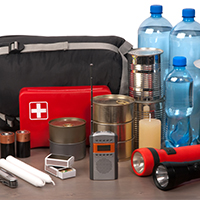Recent Posts
categories
Archives
- Tips to Lower your Electric BillPosted: 5 years ago
- 5 Easy Home Improvement Projects & Upgrades For the WinterPosted: 5 years ago
- Benefits to buying in the winterPosted: 5 years ago
- Cash In with a Cash-Out RefinancePosted: 5 years ago
- Mortgage MythsPosted: 5 years ago
- Q&A: All About Flooring — Hardwood, Carpeting, Tiling, LaminatePosted: 5 years ago
- Tip: 3 Foolproof Social Media Marketing TipsPosted: 6 years ago
- Tips for Hosting a Stress-Free Holiday DinnerPosted: 6 years ago
- Is a Mortgage Refinance Right for You?Posted: 6 years ago
- Check Your Disaster Supplies KitPosted: 6 years ago
- Create an Early Holiday Shopping BudgetPosted: 6 years ago
- 9 Ways to Make Moving Day EasierPosted: 6 years ago
- July 2018 Market Update – Twins Cities RegionPosted: 6 years ago
- Fall Homeowners ChecklistPosted: 6 years ago
- Scam Alert: Spoofed IRS Phone NumbersPosted: 6 years ago
- 15 Years of First Class MortgagePosted: 6 years ago
- How to buy a second homePosted: 6 years ago
- Q&A: Lawn Watering SecretsPosted: 6 years ago
- Troubleshoot Your Air ConditioningPosted: 6 years ago
- Your Mortgage, What to Expect: Clear To ClosePosted: 6 years ago
- Twins Cities Region Monthly Indicators – APRIL 2018Posted: 6 years ago
- Your Mortgage, What to Expect: UnderwritingPosted: 6 years ago
- Your Mortgage, What To Expect: Property AppraisalPosted: 6 years ago
- 3 Tips to Improve your Credit Score and Score a Lower Interest RatePosted: 6 years ago
- Changing Interest Rates Have A High Impact On Purchasing PowerPosted: 6 years ago
- The Myth of Multiple Mortgage Credit InquiriesPosted: 6 years ago
- Things to do BEFORE you buy a home.Posted: 6 years ago
- March Tech Tip: Pack Smarter With PackPointPosted: 6 years ago
- 4 Ways to Pay Off Your Mortgage EarlyPosted: 6 years ago
- Clean House in a HurryPosted: 6 years ago
- Your Mortgage, What To Expect: Document ReviewPosted: 7 years ago
- Chill Winter Utility BillsPosted: 7 years ago
- Six Tips to Help Your Home Sell This FallPosted: 7 years ago
- 4 Things to Know About Closing CostsPosted: 7 years ago
- Understanding Your Credit ScorePosted: 7 years ago
- Equifax Data Breach: What should you do now?Posted: 7 years ago
- Should You Refinance Your FHA to a Conventional Loan?Posted: 7 years ago
- 6 Ways to Save on Paint ProjectsPosted: 7 years ago
- Q&A: Mortgage InsurancePosted: 7 years ago
- How to Keep Your House Cool this SummerPosted: 7 years ago
- Mortgage Education: “What’s the Point?”Posted: 7 years ago
- Q&A: Spotting a Spoof SitePosted: 7 years ago
- Moving ChecklistPosted: 7 years ago
- Squash Marital Money SquabblesPosted: 7 years ago
- April 2017: Twin Cities Real Estate Market UpdatePosted: 7 years ago
- Your Spring Guide to Home StagingPosted: 7 years ago
- March 2017: Twin Cities Real Estate Market UpdatePosted: 7 years ago
- Don’t be a Victim — Four Ways Protect Yourself from Refinance ScamsPosted: 7 years ago
- Local Market Update: Minneapolis Area Association of RealtorsPosted: 7 years ago
- First-Time Homebuyers: Where to startPosted: 7 years ago
- Dear First Class Mortgage:Posted: 7 years ago
- First Class Mortgage. Our Expertise, Your Peace of Mind.Posted: 8 years ago
30
September
Check Your Disaster Supplies Kit
Posted by Winter weather season is almost here, and the Department of Homeland Security recommends families prepare ahead to survive independently for at least 72 hours in the event of an emergency, and offers tips on creating, updating and storing supplies.
Winter weather season is almost here, and the Department of Homeland Security recommends families prepare ahead to survive independently for at least 72 hours in the event of an emergency, and offers tips on creating, updating and storing supplies.
Basic disaster supplies should be stored in airtight plastic bags and placed into one or two easy-to-carry containers such as plastic bins or a duffel bag. Kits should contain:
- One gallon of water per person per day for at least three days, for both drinking and sanitation
- Non-perishable food to feed each person for three days
- Battery-powered devices such as flashlights and a radio equipped with NOAA weather and tone alert capability; or consider a hand-crank radio
- First aid kit
- Dust masks
- Personal sanitation supplies including moistened wipes, toilet paper, garbage bags and plastic ties in case public utilities are unavailable
- Tools and equipment, like manual can openers, a wrench, pliers, a whistle, plastic sheeting and duct tape to shelter-in-place if needed, local maps, backup batteries, and solar or crank chargers for cell phones
Consider unique needs your family may have beyond these basics, such as special foods and medicines or supplies for young children, seniors and pets.
If you have some warning before an emergency, a trip to the market to stock up on fresh fruits and vegetables that can last unrefrigerated for about a week will provide a welcome alternative to uncooked packaged foods.
These essential items can make a difference in comfort and survival during a disaster. Visit Ready.gov for more detailed information and free resources.
Sources: Department of Homeland Security, Real Simple

